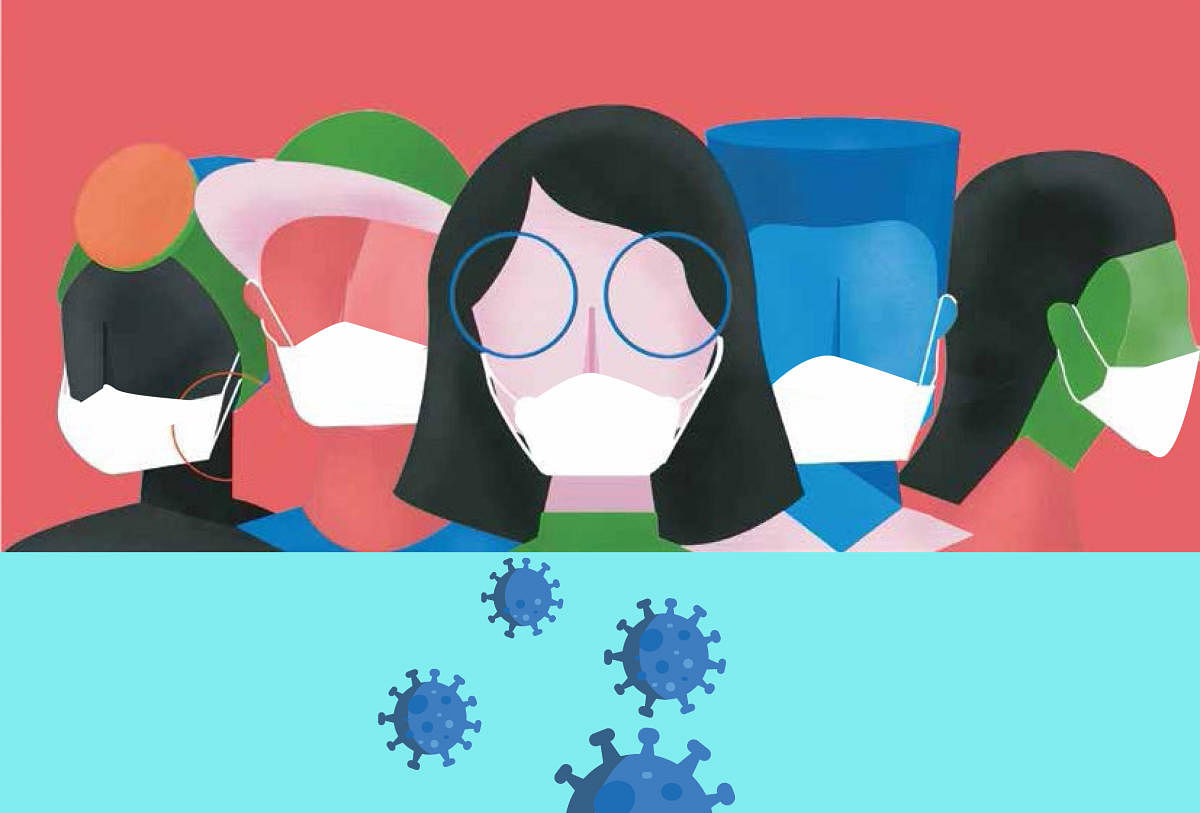
A six-layered mask made with an indigenously developed ‘tekfabric’. This material binds to a molecule, which ruptures and kills the Covid-19 virus. This is the technology behind a new face mask developed by a Bengaluru-based startup, IShield, which says it is time to move beyond prevention.
Wearing a surgical mask for more than four hours could be risky. “The virus on the outer surface could leak through. Disposal without incineration is also dangerous. That is why we thought of a mask that not just prevents but also kills the virus,” the startup cofounder Nitish Sathyanarayan told DH.
Covid-19 belongs to a family of enveloped viruses. IShield’s strategy, he explained, was to break this envelope made up of lipid bilayer. “IS-212 is a broad spectrum virucidal molecule, whose highly charged groups puncture a hole in the virus envelope. If the envelope is ruptured, the virus loses infectivity.”
The challenge was to merge this molecule with the mask fabric. “We engineered a linker that can covalently bond with a cellular substance such as cotton. With this linker, the molecule can remain bound to the cotton fabric for up to 30 washes. This chemical bond is susceptible to bleach but not detergent,” said Nitish.
The mask self-sanitises, he said. “Nearly 90% of the virus is ruptured within the first 15 minutes, and nearly 90% by 30 minutes.” This has been tested and certified by four independent laboratories, including the Rajiv Gandhi Centre for Biotechnoloy, Thiruvananthapuram; the Centre for Cellular and Molecular Platform (C-CAMP) and Mynvax, incubated at the Indian Institute of Science.
The tekfabric is part of the mask’s outer and innermost layers. “The outer layer prevents the entry of the virus, while the innermost ensures that the virus does not escape into the atmosphere if the wearer is an asymptomatic patient. The middle four layers are non-woven fabric-based filters.”
Currently, the IShield mask is being tested for filtration efficiency by the South Indian Textile Research Association (SITRA). The Defence Research and Development Organisation (DRDO) is independently evaluating the technology.
Also on the startup’s agenda is a platform technology to bind the molecules to Personal Protective Equipment (PPE). This is currently in development mode.